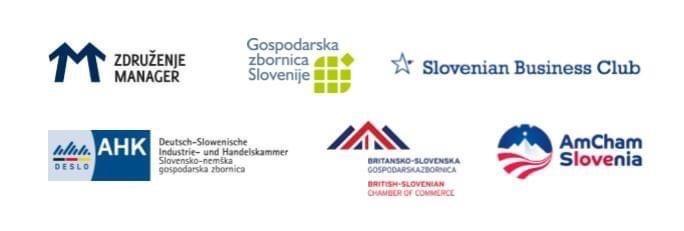The government’s measures to this date and the adoption of the first “anti-Corona” law and the proposed second package of law changes are steps in the right direction. However, action must be taken not only from the present day but also from a medium-term perspective.
The goal for companies and the state is to strengthen their resilience to prepare for the announced recession and any possible subsequent health or other crises. The Managers Association of Slovenia highlights five areas where effective collaboration for systematic and sustainably grounded arrangements at the country level.
“The current crisis also offers Slovenia the opportunity to define its strategic orientations towards sustainability, a circular economy, and self-sufficiency. We will have to adapt and look for new business models and processes in a very agile way, adapt new supply chains, and quickly set up a new value chain system,” emphasizes Medeja Lončar, president of the Managers Association.

Five areas that are crucial for the survival and resilience of the Slovenian economy in the face of uncertainty and significant socio-economic changes and which require a comprehensive approach and systematic approach are:
- providing liquidity,
- greater flexibility in the labor market,
- promoting the further digitization, simplification of administrative procedures and efficiency of public authorities,
- raising productivity and
- new business models and processes.
Providing Liquidity: A Two-Year Prospective
The second set of measures to mitigate the effects of the coronavirus epidemic should focus on providing the economy with liquidity. Companies will find it challenging to find new sources of financing in the current circumstances and will need state aid to secure billions for new loans and repayments. These measures should be planned for at least one to two years ahead.
Germany, for example, has been planning its actions for two years: the country will increase its investments, completely release access to part-time funding, and provide liquidity to companies. With its “Billion Shield” action plan, it envisages almost unlimited measures to help to ensure liquidity, adjusting funding to the height of actual needs.
Labor Market: Flexibility and Openness to the needed changes
It is also crucial to adopt measures that will allow greater flexibility in the labor market. One of the instruments may be the establishment of a so-called “labor exchange market.” It would make it easier for workers who can no longer work in one company because of the crisis to be transferred to another employer. Germany, Austria, and the Czech Republic can be taken as a good example, introduce a part-time work financing to prevent mass layoffs. All this requires openness to establish new forms of work that allow for flexibility and collaboration, as well as original arrangements between businesses as well as businesses and social partners.
Digitalization: the fast pace of the economy and public administration
The crisis has prompted many Slovenian companies to promote digitalization, teleworking, new forms of work, and different modes of education. It is imperative that the country follows this and changes its way of working in the direction of greater flexibility and rapid and simplified administrative procedures concerning the economy. This last will be very important in accelerating economic activity. It would also make sense to gradually abolish the restrictions on economic activity, provided, of course, that companies and individuals take appropriate preventive measures and responsible behavior.
Productivity: A personalized action plan
When restarting the economy, more considerable attention must be paid to raising productivity, which is crucial for the long-term success of businesses and the state. The Managers Associations of Slovenia with the Faculty of Economics, University of Ljubljana, and the Ministry of Economic Development and Technology is intensively preparing concrete development proposals that take into account the new circumstances of significant socio-economic changes. Measures are highlighting the areas of demographic challenges, education and science, technological and sustainable development, the rule of law, and fiscal policy.
A proposal by the Economic and Government Task Force
With the aim of systematically and sustainably set solutions at the national level, the Managers Association of Slovenia proposed to the Ministry of Economy the establishment of a special operational expert group of the economists and the government. The group could address the strategic direction of the new path of the Slovenian economy and, thus, actions for a more extended period after the epidemic crisis. Depending on the measures proposed by the government to economic organizations, which in this period are also intensely connected, it depends on whether the Slovenian economy will meet the end of the epidemic in a condition that will allow the quickest possible exit from the crisis. Good economic condition is one of the prerequisites for ensuring social security and economic well-being.
New circumstances also set new tasks for managers
“The Crisis Strategic Group at the Managers Association, made up of successful managers and management professionals, has identified three development pillars that require the attention of managers and their involvement. These are people, new business models, and a broader aspect of strategic activities – all three with a focus on sustainability, which is at the heart of the new Managers Association program for the next three years,” Saša Mrak Hendrickson, Executive Director highlights. She added that during this period, the Managers Association of Slovenia would pay particular attention to the competencies of crisis management, being open to sharing knowledge even more widely, also meaning with colleagues in public administration.

Source: Združenje Manager


















